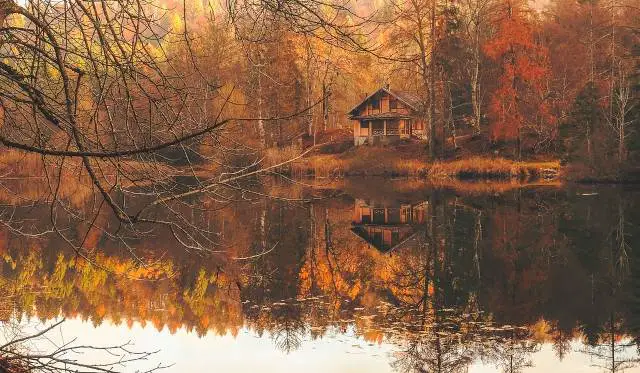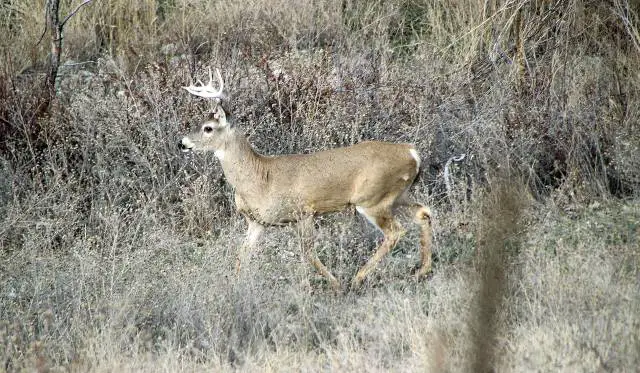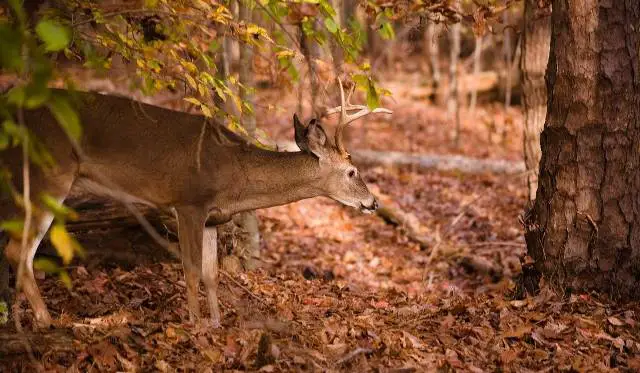Deer camp is a time-honored tradition bringing hunters together sharing their passion for the outdoors and the pursuit of game. During deer hunting season, it serves as both a gathering place and an overnight base near hunting grounds. Typically, accommodations range from tents to cabins, and even converted school buses or shipping containers, but the core experience is built on camaraderie and shared stories amongst seasoned hunters and newcomers alike.

Deer camp is a opportunity to connect with nature and create lifelong memories. The crisp air, scent of evergreens, and the crunch of fresh snow underfoot create an unforgettable ambiance. It’s a chance for hunters to remember past experiences, hone their skills, and teach the next generation about wildlife management and conservation. Participating in deer camp is a rite of passage for avid hunters.
Contents
Deer Camp Basics
History of Deer Camp
Deer camp has been a long-standing tradition. Throughout history, deer camps have evolved from simple gatherings in primitive shelters to more elaborate weekend getaways with modern amenities.
In the early days, people relied on basic survival skills and knowledge passed down from their ancestors. As time went on, advances in hunting technology and equipment allowed hunt participants to focus more on honing their craft and creating memories with friends and family. Today’s deer camps range from informal backwoods outings to organized club events.
Deer Camp Traditions
Various traditions have grown over the years. While each group may have their own unique customs, there are several traditions that are almost universally recognized among hunters:
- Opening Day Ritual: Many deer camps assign a special significance to the opening day of the season. This often involves a predawn gathering, where hunters share a hearty breakfast and discuss their plans for the day before heading out into the woods.
- Campfire Stories: As hunters return from the woods each evening, it’s common for them to sit around a roaring campfire, recounting their day’s adventures.
- Preparing and Sharing Meals: Food plays a central role in the overall experience, with participants bringing along their favorite dishes or cooking up the day’s bounty. Cooking and sharing meals together allows everyone to bond and enjoy the fruits of their labor.
Planning a Deer Camp
Choosing the Right Location
When planning camp, finding the perfect location is crucial. The ideal spot should have a high concentration of white-tailed deer and provide good cover for wild game. Look for areas with dense woods or fields that offer natural shelter and food sources for game. Off-season scouting can help you identify promising locations, and consulting locals who can provide valuable insight.
Identity of Deer Camp
Choosing the right deer camp name is important as it helps to represent the identity of the camp, hunters, and traditions. Select deer camp name ideas that reflect the values, history, and unique characteristics of the camp.
Preparing for deer hunting
In the weeks leading up to the camp, spend time gathering and checking essential hunting gear, practicing shot marksmanship and familiarizing yourself with your gear. During the hunt, follow a strategy that includes carefully planned deer drives, deer stand rotations, and coordinating with fellow hunters. Stay up-to-date on seasonal trends and local deer behavior.
Before the season begins, make sure to secure the necessary hunting permits and tags. You should also check the regulations for the area you will be hunting in, as these can vary between regions.
Establishing Camp Rules
A well-organized hunt requires establishing clear rules that everyone must follow. These guidelines can cover topics like firearm safety, hunter etiquette, and respecting the land you are on. Additionally, consider adopting rules that encourage camaraderie and healthy competition among the group, such as a trophy made from antlers for the largest buck taken.
Proper communication is essential to avoid accidents and ensure everyone’s safety. Designate a camp leader who manages communication and coordinates the camp’s activities.

Accommodations and Amenities
Types of Accommodations
There are a variety of accommodations to suit each hunter’s needs and preferences. These include:
- Cabins: Cozy and comfortable, cabins provide a warm and inviting atmosphere for families and groups. A cabin usually is equipped with essential amenities such as beds, a kitchen, and a bathroom.
- RVs: For those who prefer the convenience and flexibility of a portable living space, RVs are an excellent option. They can be parked in designated areas allowing for easy access to fields and woods.
- Tents: For the more adventurous, tent camping offers a closer connection to nature.
- Campers: Similar to RVs, campers provide a mobile accommodation option. They are often smaller and more affordable, making them a popular choice for those who want to combine the comforts of a cabin with the flexibility of an RV.
Essential Amenities
Aim to provide hunters with all the necessary amenities for a successful and enjoyable experience. Some of the essential amenities include:
- Outhouses: In areas without access to indoor plumbing, outhouses serve as an essential amenity for campers. They provide privacy and hygienic facilities for campers to comfortably attend to their needs.
- Propane and wood stoves: When staying in a tent, camper, or RV, having access to a propane or wood stove is crucial for cooking meals and staying warm during cold nights.
- Rifles or Shotguns: Most deer camps allow hunters to bring their own rifles or shotguns, while others may provide rental options.
- Family-friendly facilities: Cater to family groups by offering accommodations suitable for families and additional amenities.
Deer Camp Community
Building a Bond Through Hunting
Individuals from different generations participate in the camp tradition, with dads and moms teaching their kids essential hunting skills. The collective pursuit of game, and even other animals like bears, fosters camaraderie among friends and family.
Hunt Competitions
To keep the atmosphere lively, camp often includes friendly competitions. Participants engage in various contests such as the biggest bucks harvested, the first one to bag a buck or doe, most difficult shot, and the most significant improvement in hunting skills. These competitions add another layer of excitement to the event, strengthening the connections built within the camp community.
Participants are immersed in the outdoors through these competitions, reinforcing their love for nature and hunting. It is not just about winning or losing. The spirit of friendly rivalry fosters an environment of support and encouragement among members of the deer camp community.

Passing on the Tradition
Engaging the Next Generation
Deer camp is a time-honored tradition that brings together family and friends from different generations. It’s crucial to engage the next generation in these traditions, to ensure the continuity of the deer camp legacy for years to come. Inviting younger family members to participate in various aspects, such as setting up blinds, learning about deer or elk behavior, and even cooking game, will help them develop a passion for the outdoors and an appreciation for the time spent together during hunts.
By sharing personal experiences and stories from past hunting trips, older generations can pass on invaluable knowledge to younger hunters. This allows the next generation to learn from the mistakes and successes of those who hunted before them.
Preserving the Deer Camp Legacy
Preserving the deer camp legacy involves much more than just passing on techniques and stories. It also requires actively maintaining traditions and deer camp ideas that have been established over the years. This might include activities like swapping stories around a campfire, sharing traditional meals, or even keeping special mementos and artifacts from past deer camps, such as Big John’s triple extra-large orange parka that has remained in the same spot since he passed away.
It’s important to foster an environment of respect and reverence for the history of deer camp, ensuring that every member, young and old, understands the significance of the traditions in which they participate. This can help preserve the spirit of deer camp for future generations to come, ensuring that the flame of this time-honored tradition continues to burn for many winters ahead. Maintaining these traditions also helps to strengthen family bonds, as each generation shares in a common experience and connection to nature.
